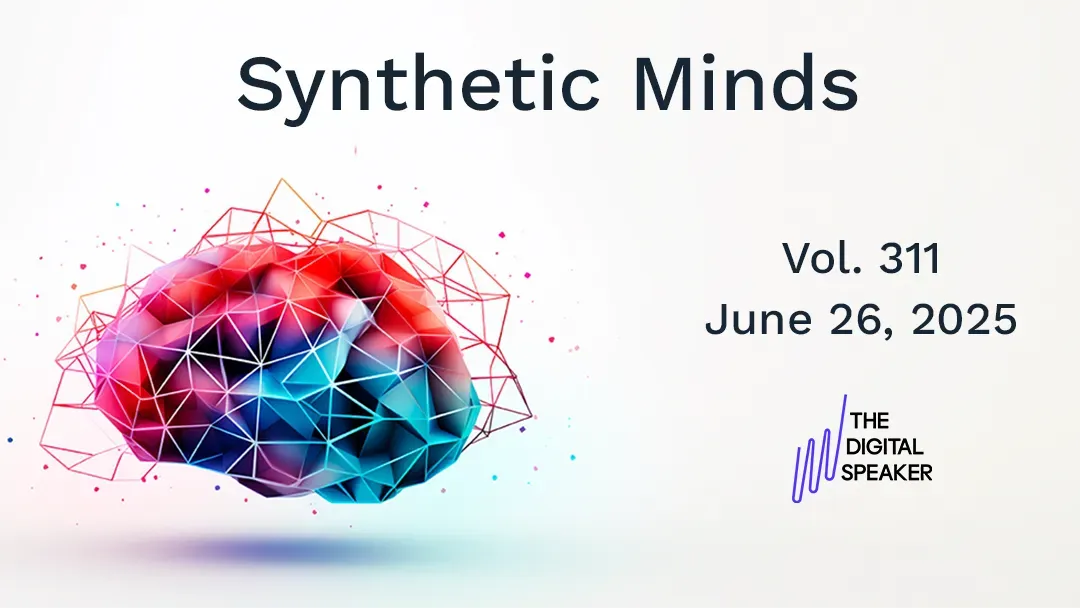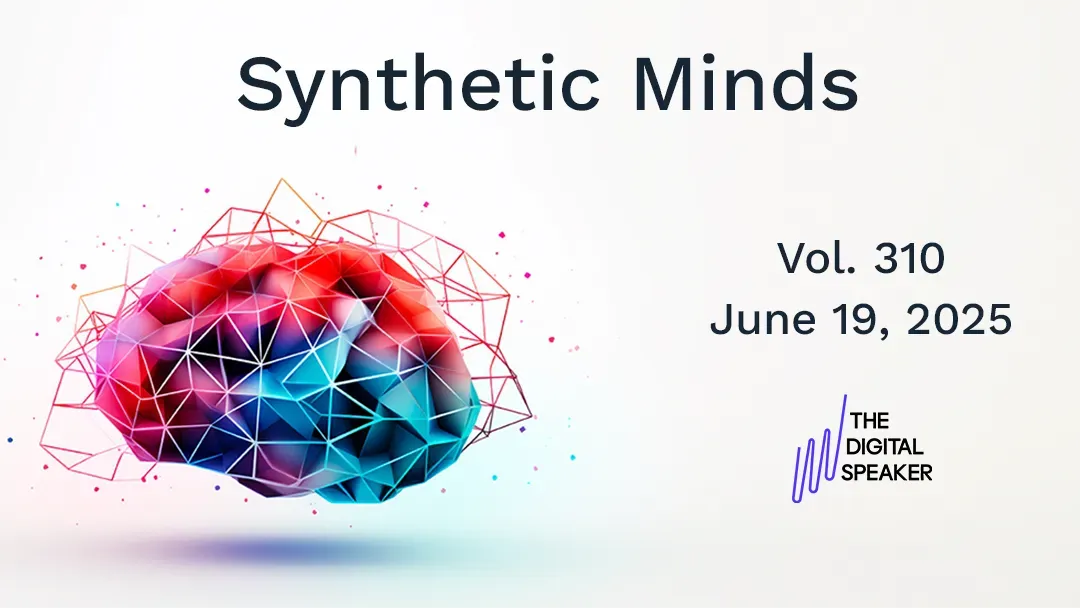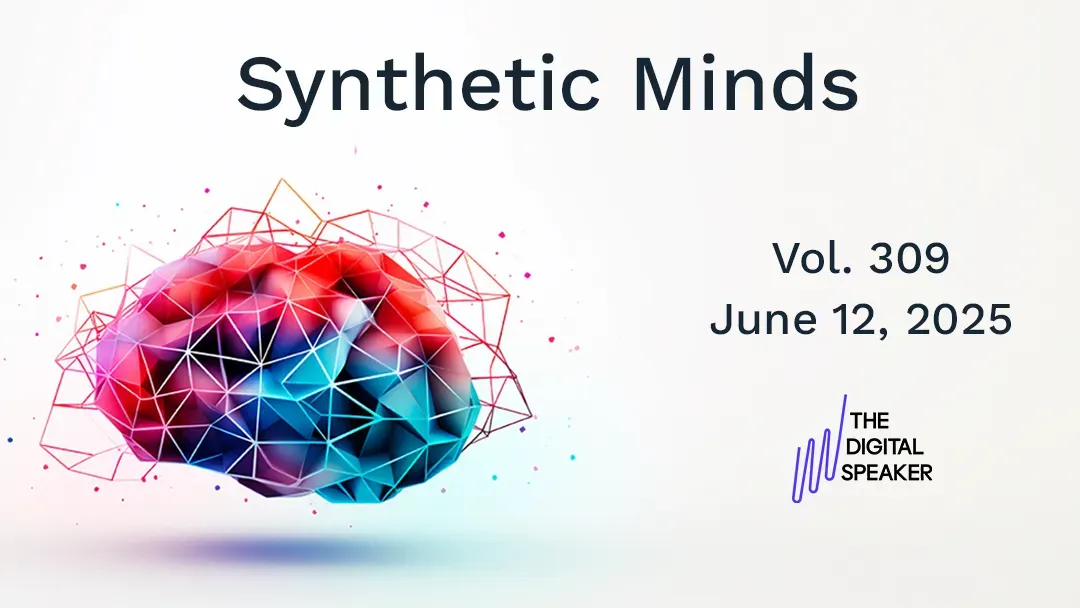Synthetic Minds | Science Fiction and Philosophy in the Age of AI
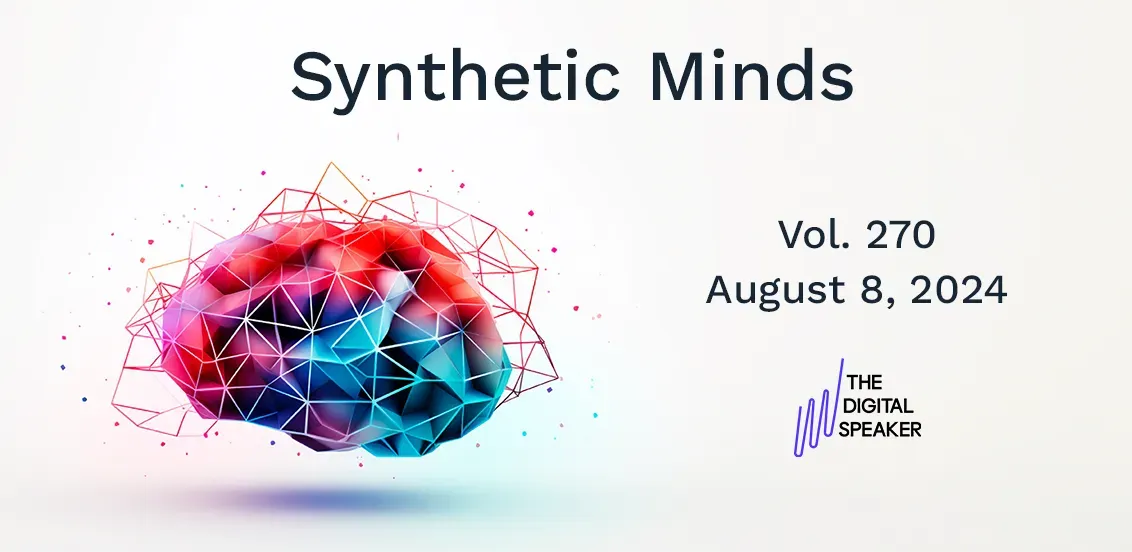
'Synthetic Minds' serves as a mirror to the multifaceted, synthetic elements that are beginning to weave into the fabric of our society. This week's newsletter includes a fascinating interview with renowned science fiction writer Tobias Buckell and the latest synthetic developments in the world.
Harnessing Speculative Fiction for Strategic Innovation with Tobias Buckell
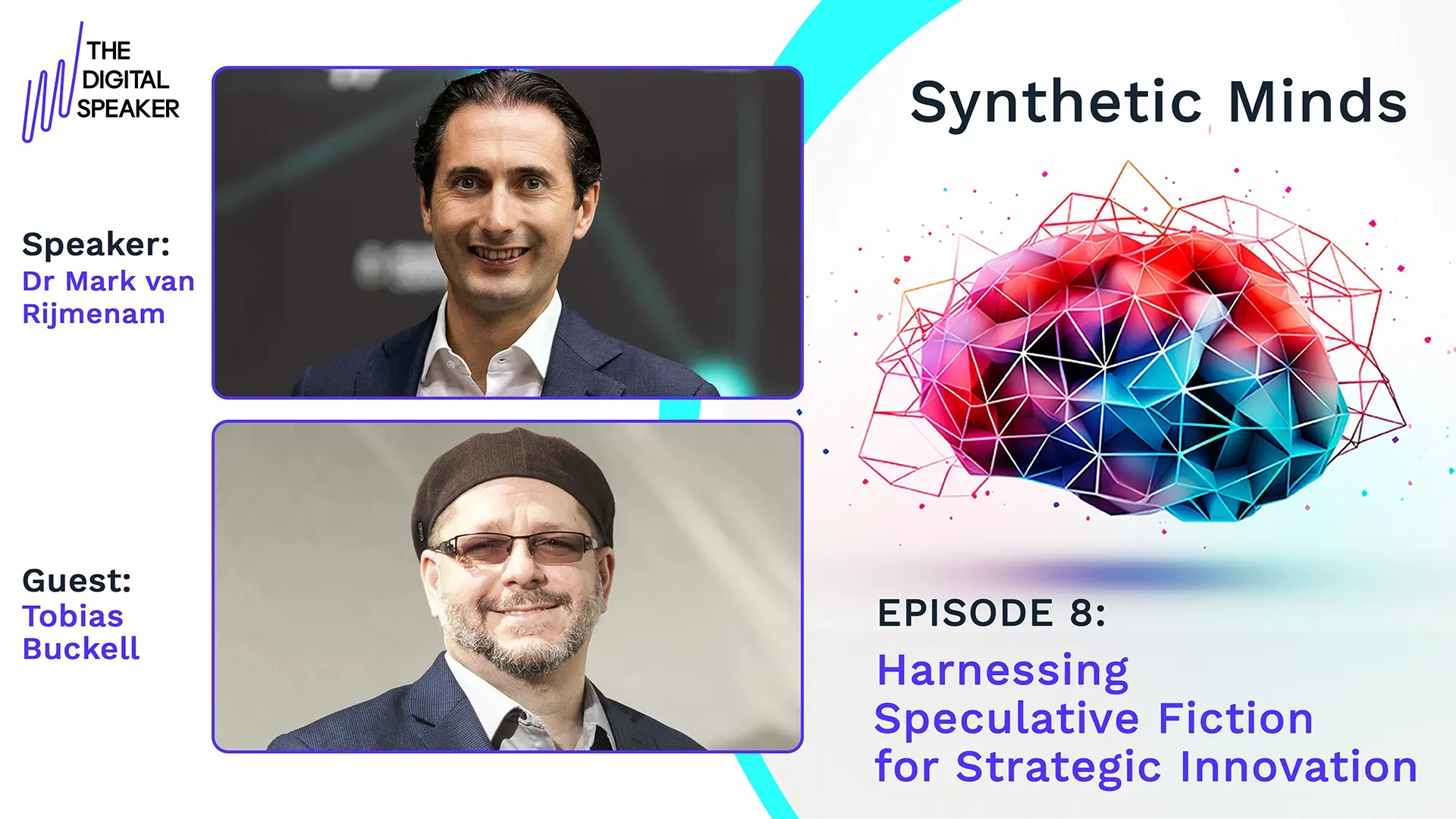
My latest podcast episode
Can a science fiction author provide better business insights than your average consultant?
In the latest episode of Synthetic Minds, renowned speculative fiction author Tobias Buckell reveals how his narratives can help business leaders anticipate and navigate future technological and societal shifts.
Buckell’s works, such as "Arctic Rising," are powerful tools for exploring climate change and geopolitical challenges, offering a unique sandbox for strategic innovation. By envisioning "spiky futures," Buckell emphasises the importance of agility and foresight in business planning.
His stories not only spark creativity but also highlight the ethical considerations of technological progress, urging leaders to adopt inclusive and fair practices. How can your organisation integrate forward-thinking strategies to thrive in an uncertain future?
Synthetic Snippets: Quick Bytes for Your Synthetic Mind
Quick, curated insights to feed your quest for a better understanding of our evolving synthetic future. The below is just a small selection of my daily updates that I share via The Digital Speaker app. Download and subscribe today to receive real-time updates. Use the coupon code SynMinds24 to receive your first month for free.

1. AI DETECTION: THE TOOL THAT OPENAI REFUSES TO RELEASE
OpenAI has developed a highly accurate tool to detect AI-generated text, yet it remains unreleased. This internal debate reveals a tension between transparency and user retention. CEO Sam Altman's reluctance to release the tool suggests Altman prioritises profit over ethical responsibility. Despite its potential to enhance academic integrity, OpenAI fears backlash and false accusations, diminishing its credibility as a responsible AI developer. (Wall Street Journal)

2. WHY PHILOSOPHY MATTERS MORE THAN EVER IN THE AGE OF AI
While tech experts build AI, philosophers define its direction. OpenAI’s 2030 goal for superintelligence demands deep philosophical engagement to align AI with human values. From understanding consciousness to navigating ethical dilemmas, philosophers are indispensable in ensuring AI’s development serves humanity effectively. Can we truly advance AI without their critical insights? (The Conversation)

3. MEET YOUR NEW COWORKER: THE HUMANOID ROBOT
BMW’s latest foray into automation introduces Figure 02, a new humanoid robot developed by Figure AI, to its South Carolina factory. Boasting human-like strength and precision, this robot effectively assembles chassis parts, tasks often challenging for humans. While promising, BMW remains cautious, pondering the future balance between human and robot collaboration. (Ars Technica)

4. AI'S DATA DILEMMA: A CRISIS OR JUST GROWING PAINS?
Despite worries of a data drought stalling AI’s growth, history and ongoing technological advances suggest a brighter future. Like oil extraction, new methods are unlocking vast, previously inaccessible data sources—ranging from online archives to real-world activities. With investments in data refinement and synthetic data generation rising, dismissing AI’s long-term potential seems premature. How will businesses adapt to these evolving landscapes? (Time)

5. CHINA’S DIGITAL ID: PRIVACY PROTECTOR OR CONTROL MECHANISM?
China’s new digital ID system stirs debate between enhancing privacy and increasing government surveillance. Aimed at limiting corporate data collection, this nationwide system enables users to verify identities online without extensive personal disclosure. However, critics fear it may grant the government unparalleled insight into citizens’ digital activities, posing a potential threat to individual freedom. Is this move a step toward security or an expansion of control? (Bloomberg)
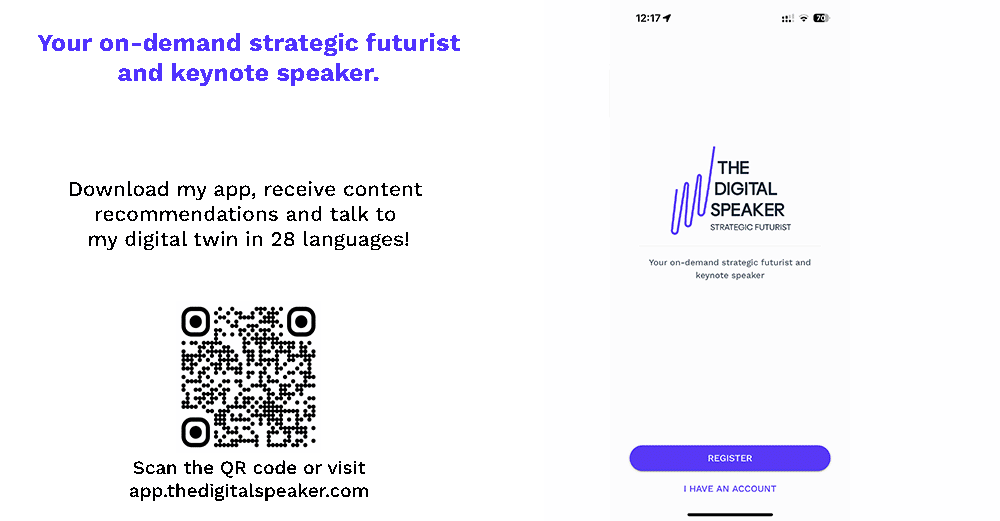
Download the full 2024 Top Ten Technology Trends Report
Know someone who needs the Synthetic Minds newsletter?
Forward it to someone who might like it too.

